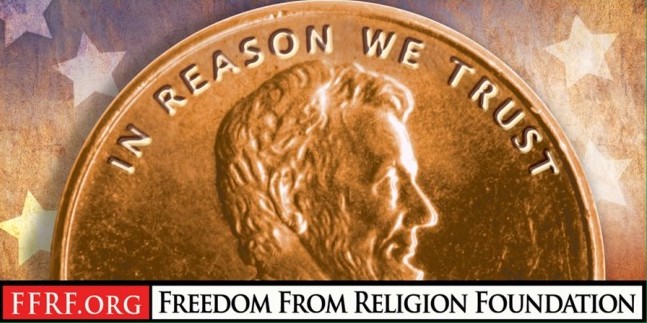
Yet another state law to foist God on the public education system has been put into place — and yet again the Freedom From Religion Foundation will fight it tooth and nail.
An Arkansas bill requiring “In God We Trust” to be displayed in public schools went into effect this month. Act 911 requires the pious quip in every classroom, school library, or building owned or operated with public funds. The “In God We Trust” display posters themselves must be privately donated. The purpose behind the law is clear: to use the machinery of the state to promote Christianity.
As one youth pastor who supported the bill explained, “As a student pastor, I think it’s vital that we have that spiritual influence in our schools as much as possible.” He continued, “This is who we are, this is who we have been and hopefully, I pray, that’s who we continue to be moving forward. In the name of Jesus that our lives will be directed as we obediently follow Christ.”
The sponsor of the bill has been a bit more circumspect. Primary sponsor state Rep. Jim Dotson said, “The reasoning behind it is just to recognize the motto and just having it up on display. We have it on our money, so it’s appropriate to have it on our walls at our schools.”
But this historical veneer is a sham. If Dotson truly wanted to honor our founding history, he would have proposed displaying the phrase proposed by Thomas Jefferson, John Adams and Ben Franklin: E pluribus unum. Instead, he chose the johnny-come-lately motto that happens to evince a belief in his god.
The impact of this law will now be felt by school districts and parents. When religion gets into our public schools, it often creates division.
That is especially true given the shifting demographics in the United States. A recent survey found that 21 percent of Americans born after 1999 — students in those public schools — are atheist or agnostic. Another 14 percent have no religious affiliation. They will all have to put up with this godly intrusion.
The Freedom From Religion Foundation will continue to oppose this law and work to undo it on behalf of its 32,000 members, including its members in Arkansas.

